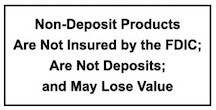Identity theft continues to be a growing problem, especially as we rely more on technology to conduct business that involves entering our personal information online. Despite understanding the threat of having our identity stolen, many of us are lackadaisical about protecting it.
In a 2017 survey conducted by credit reporting giant Experian, 81% of respondents rely on banks and credit card companies for identity protection, and more than half don’t believe they are at risk. Here are four tips to defend your identity from being stolen.
- Limit What You Carry in Your Wallet
- Use and Mix Up Passwords
- Review Bills and Monitor Your Credit Report
- Invest in a Shredder
- Final Words
Limit What You Carry in Your Wallet
Regardless of mobile payment methods, like Apple Pay, Google Wallet, and Pay Pal, identity thieves still resort to old-fashioned methods of stealing bags and wallets to gain access to your financial information. Minimizing your wallet contents makes misusing your identity more difficult for thieves.
Only carry one or two essential credit cards at a time. Keep cards that you use only occasionally at home under lock and key. Also, never carry around your Social Security card. Getting hold of your Social Security number is like winning the jackpot to a thief.
Use and Mix Up Passwords
Passwords and personal identification numbers (PINs) are the keys that unlock your digital identity. The Experian study found that 50% of those surveyed don’t bother password-protecting their digital devices, and 30% find passwords an annoyance. You leave the door wide open for thieves by not using passwords and PINs.
Make your security codes simple enough for you to remember but too complex for fraudsters to figure out. Don’t use the same codes for multiple sites or devices, and avoid using identifiable information like anniversaries or names.
To keep track of your passwords and PINs, you can use a password management tool or simply write them down in a notebook that you keep locked away for safekeeping.
Review Bills and Monitor Your Credit Report
As we become more environmentally conscious and cost-efficient, online billing and paperless statements are becoming the norm. With the convenience of receiving bills digitally, you may be tempted to automatically pay them from your bank account without looking at them carefully. Instead, take a few minutes to download and review your statements for discrepancies or unusual charges.
To ensure your credit hasn’t been used to open a fraudulent account, you should also monitor your credit report annually. You’re allowed to request one free credit report a year from Equifax, TransUnion, or Experian. Check your report for inaccuracies and suspicious accounts that have been opened under your name.
Invest in a Shredder
In spite of our dependence on technology, we may find a need for hard copies of certain documents, especially legal or financial papers that contain identifiable information. Never place such documents, receipts, or other printed records directly in the trash or recycle bin. Buy a personal shredder to destroy paperwork.
If you have a large amount, several office supply stores and printing facilities offer secure shredding services. You might also check if your community or an organization in your city will be holding a free shredding event.
Final Words
Keeping your identity safe may take a few extra steps. However, taking these measures now is easier and takes less time than trying to clean up your credit after your identity has been stolen.


